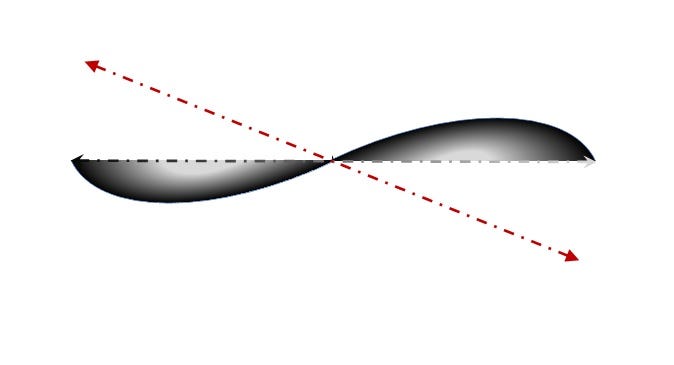Whose Kooks And Crackpots Are Worse?
finance vs physics
Every field of study, practice, and profession has its fringe1. But in some cases these heterodox thinkers survive better than in others. And in some cases they actually thrive.
The contrast I’d like to make here is between finance and physics. It seems to me that the experience between them is quite different.
To wit: technical analysis, folk-wisdom strategies, et al. endure versus theories in physics are commonly rejected.
Is it just the democratic/accessible nature of finance? Perhaps the inability in finance to cleanly test and reject bad theories?
Still, like a bad penny, bad ideas in physics keep turning up. Or at least they keep being born again.
In almost all cases these are intelligent but unwise people with just enough understanding to be dangerous (figuratively speaking, usually). They just haven't studied enough of the right stuff. When they confront a learned physicist, their theories are easily defeated.
In finance the technical analysis crowd is too often given quarter if not outright embraced by practitioners. This is not to mention how many practitioners are monetarily successful but intellectually deficient such that they themselves are victim of these bad ideas.
That is perhaps the heart of the problem—the "market test" of physics is generally a hard science test with clear results. The market test of finance is really more of a test of funding. If you can find a fool with money (including yourself) to fund your "experiment", you can succeed even if your actual results don't stand up to independent scrutiny. Kind of a Ponzi-Scheme-driven support structure.
The only analogue in physics seems to be the grant funding world. Indeed it is beset with good money chasing bad ideas. Yet there is some intellectual-integrity rigor here keeping it in check.
The problem seems to be worse in biology, medicine, nutrition and others in that order. Hard to say if any are as bad as bad finance, which tends to be self funding—there is no better source of foolish investing than greed, envy, and the motivated reasoning of confirmation bias.
Curiously in finance there is a somewhat symbiotic relationship between the kooks and the mainstream. If it weren’t for the kooks, the mainstream would have a much harder time justifying themselves. Someone has to be on the other side of a trade. The dumber the dumb money, the more opportunity there is for active, smart money to take advantage.
In my estimation we have the two major culprits for why the experience is different in these two fields as well as many others finding themselves along this spectrum.
The more a field is characterized by being loose, vague, and indeterminant, the more at risk it is of having a strong, incorrect fringe.
The more a field can benefit from its fringe, the more the fringe will endure.
The more smoke there is, the harder it is to put out the fire—being a firefighter is hard. And the more a firefighter benefits from fires, the less effective will be the firefighting.
Nothing new under the Sun. For these fires have been always burning since the world’s been turning. . .
P.S. Evernote’s AI gave me this as a suggested conclusion to this short piece—not too shabby:
In conclusion, it's evident that the worlds of finance and physics are plagued with their fair share of misguided theories and practitioners. The lack of rigorous testing and the influence of funding in finance seem to allow for the perpetuation of bad ideas, while the intellectual integrity in physics, though not immune to the problem, provides a more robust framework for challenging and rejecting flawed theories. This underscores the importance of critical thinking and thorough knowledge in both fields, as well as the need for a more stringent evaluation process in finance to prevent the proliferation of detrimental practices.
Strongly related:
Loosely related:
In this post I am only concerned with the heterodox, fringe thinking and practices that are folly. As you know, I am a strong supporter of critical, challenging thinking including questioning the status quo with bonus points for questioning the sacred. Counter-conventional wisdom is all about that, after all.




